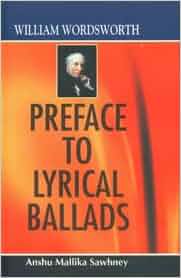

“Preface to the Lyrical Ballads” is an introduction to Wordsworth’s poetry collection, Lyrical Ballads, as well as a manifesto for the Romantic movement in England. He died in 1850 at the ripe age of eighty, and famed poet Alfred Lord Tennyson succeeded him as poet laureate. By 1843, Wordsworth was poet laureate of Great Britain. Over the years, he grew increasingly prosperous and famous, but settled into a religious and political conservatism that disappointed readers, like William Hazlitt, who once thought of him as a promoter of democratic change. A short period of collaboration between Wordsworth and Coleridge led to the publication of one of the most important books of the time: Lyrical Ballads.

In 1795, he moved to Dorsetshire with his sister, Dorothy, befriended poet Samuel Taylor Coleridge, and began his own poetic career at the age of 27. At this critical time, a friend died and left Wordsworth enough money to live by writing poetry. This, combined with his disillusionment with the Revolution, led Wordsworth to the verge of an emotional breakdown. Lack of money forced him to return to England and war prevented him from rejoining his lover and child. During this time, he fell in love with a Frenchwoman, Annette Vallon, and fathered a daughter, Caroline, with her. He spent a year in France (November 1791 to December 1792) after completing his studies and became an ardent supporter of the French Revolution. John’s College, Cambridge University and took his degree without distinction. His love for nature most likely came about as a result of this upbringing.

William Wordsworth was born in a raised in the scenic English Lake District, a rural paradise.


 0 kommentar(er)
0 kommentar(er)
